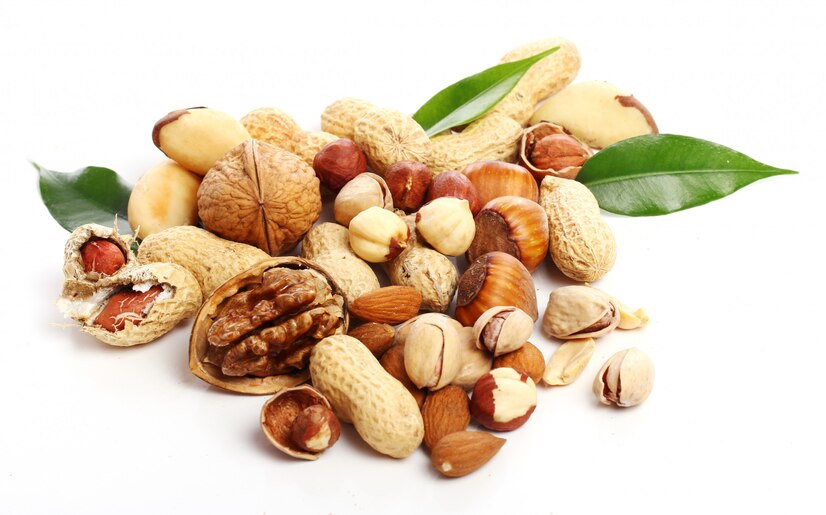Inflammation is the body’s natural response to injury or infection, but when it becomes chronic, it can contribute to various health issues like arthritis, heart disease, and even cancer. A diet rich in anti-inflammatory foods can help reduce inflammation and promote overall well-being. Here are the top 10 anti-inflammatory foods to add to your diet.
1. Berries

Berries such as blueberries, strawberries, raspberries, and blackberries are packed with antioxidants, especially anthocyanins. These compounds give berries their vibrant colours and have powerful anti-inflammatory properties. Berries are also rich in fibre and vitamin C, which further support immune function and reduce oxidative stress in the body. Adding a handful of fresh or frozen berries to your smoothies, salads, or oatmeal can significantly boost your anti-inflammatory intake.
2. Fatty Fish

Fatty fish like salmon, mackerel, sardines, and tuna are excellent sources of omega-3 fatty acids, specifically EPA and DHA. These essential fats are known for their potent anti-inflammatory effects. Omega-3s help reduce the production of inflammatory compounds like cytokines and prostaglandins, which can contribute to chronic inflammation. Aim to include fatty fish in your diet at least twice a week, either grilled, baked, or added to salads for maximum benefits.
3. Turmeric

Turmeric, a bright yellow spice commonly used in curries, contains curcumin, a powerful anti-inflammatory compound. Curcumin has been shown to inhibit inflammatory pathways in the body and help reduce symptoms of inflammatory diseases such as arthritis. To increase the absorption of curcumin, combine turmeric with black pepper, as the piperine in black pepper can enhance its bioavailability. Adding turmeric to soups, stews, teas, or even smoothies can help keep inflammation in check.
4. Leafy

Greens Leafy greens such as spinach, kale, and Swiss chard are high in antioxidants, vitamins, and minerals that help fight inflammation. They are particularly rich in vitamin E, which plays a role in protecting the body against pro-inflammatory molecules. Leafy greens also provide a good source of fibre, which supports gut health and reduces inflammation by promoting a healthy balance of gut bacteria. Incorporating leafy greens into your diet as salads, smoothies, or side dishes can offer numerous anti-inflammatory benefits.
5. Nuts and Seeds

Nuts and seeds, including almonds, walnuts, chia seeds, and flaxseeds, are loaded with healthy fats, fibre, and antioxidants. Walnuts, in particular, are high in alpha-linolenic acid (ALA), a type of omega-3 fatty acid that has anti-inflammatory properties. Chia seeds and flaxseeds are also rich in ALA and can be easily added to various meals, such as smoothies, yoghurt, or oatmeal. Including a small handful of nuts and seeds in your daily diet can help lower inflammation and improve heart health.
6. Olive Oil

Extra virgin olive oil is one of the healthiest fats you can consume. It contains oleocanthal, a compound with effects similar to anti-inflammatory drugs like ibuprofen. The monounsaturated fats in olive oil help reduce levels of inflammatory markers in the body, making it a great addition to an anti-inflammatory diet. Use olive oil as a dressing for salads drizzled over vegetables, or in cooking to reap its health benefits.
7. Ginger

Ginger is a versatile root that has been used for centuries for its medicinal properties. It contains gingerol, a substance with anti-inflammatory and antioxidant effects. Ginger can help reduce inflammation and relieve symptoms of inflammatory conditions, such as osteoarthritis. Fresh ginger can be added to teas, smoothies, and soups, or used as a spice in various dishes. Regularly incorporating ginger into your diet can aid in reducing chronic inflammation.
8. Green Tea

Green tea is rich in polyphenols, particularly epigallocatechin gallate (EGCG), which is known for its strong anti-inflammatory and antioxidant properties. Drinking green tea regularly has been associated with reduced risks of several chronic diseases, including heart disease and cancer. Consuming one to two cups of green tea daily can support your body’s fight against inflammation.
9. Tomatoes

Tomatoes are an excellent source of lycopene, a carotenoid that has been shown to reduce inflammation and protect against various chronic diseases. Cooking tomatoes, such as in tomato sauce or soup, increases the bioavailability of lycopene, making it easier for your body to absorb. Tomatoes also contain other beneficial nutrients like vitamin C and potassium, which support overall health and help reduce inflammation.
10. Garlic

Garlic is not only a flavorful addition to meals but also a powerful anti-inflammatory food. It contains sulphur compounds, such as allicin, which help inhibit inflammatory enzymes and reduce inflammation in the body. Garlic’s immune-boosting properties can also help the body fight off infections that may trigger inflammation. Using garlic in cooking, whether raw or cooked, can enhance the anti-inflammatory profile of your diet.
Conclusion
Incorporating these anti-inflammatory foods into your daily diet can help reduce chronic inflammation and improve overall health. A diet rich in fruits, vegetables, healthy fats, and spices not only provides essential nutrients but also supports the body’s natural ability to fight inflammation. By making these simple dietary changes, you can enhance your well-being and lower the risk of inflammation-related health conditions.
